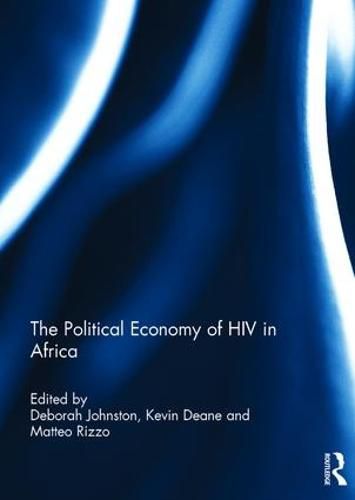Readings Newsletter
Become a Readings Member to make your shopping experience even easier.
Sign in or sign up for free!
You’re not far away from qualifying for FREE standard shipping within Australia
You’ve qualified for FREE standard shipping within Australia
The cart is loading…






Biomedical revolutions seem to have radically altered the environment for HIV transmission: anti-retrovirals (ARVs) and drugs to reduce mother-to-child transmission promise to cut HIV transmission rates, as does male medical circumcision. However, the hopeful messages of UNAIDS are tempered with warning about expenditure shortfalls and calls for funding. Contributions to this book remind us that, along with the external financial constraints, there have been new fractures in state power and in the organisation of health systems. More than this, the book fundamentally calls into question whether biomedical interventions can change the social roots of this disease. As well as considering new policy approaches, the book reasserts a long-standing political economy approach to HIV and to adapt it to reflect new competing theoretical approaches. The chapters attempt to connect the debates about HIV/AIDS to larger discussions about globalisation, class differentiation, inequity and uneven development in African countries. This book was originally published as a special issue of Review of African Political Economy.
$9.00 standard shipping within Australia
FREE standard shipping within Australia for orders over $100.00
Express & International shipping calculated at checkout
Biomedical revolutions seem to have radically altered the environment for HIV transmission: anti-retrovirals (ARVs) and drugs to reduce mother-to-child transmission promise to cut HIV transmission rates, as does male medical circumcision. However, the hopeful messages of UNAIDS are tempered with warning about expenditure shortfalls and calls for funding. Contributions to this book remind us that, along with the external financial constraints, there have been new fractures in state power and in the organisation of health systems. More than this, the book fundamentally calls into question whether biomedical interventions can change the social roots of this disease. As well as considering new policy approaches, the book reasserts a long-standing political economy approach to HIV and to adapt it to reflect new competing theoretical approaches. The chapters attempt to connect the debates about HIV/AIDS to larger discussions about globalisation, class differentiation, inequity and uneven development in African countries. This book was originally published as a special issue of Review of African Political Economy.